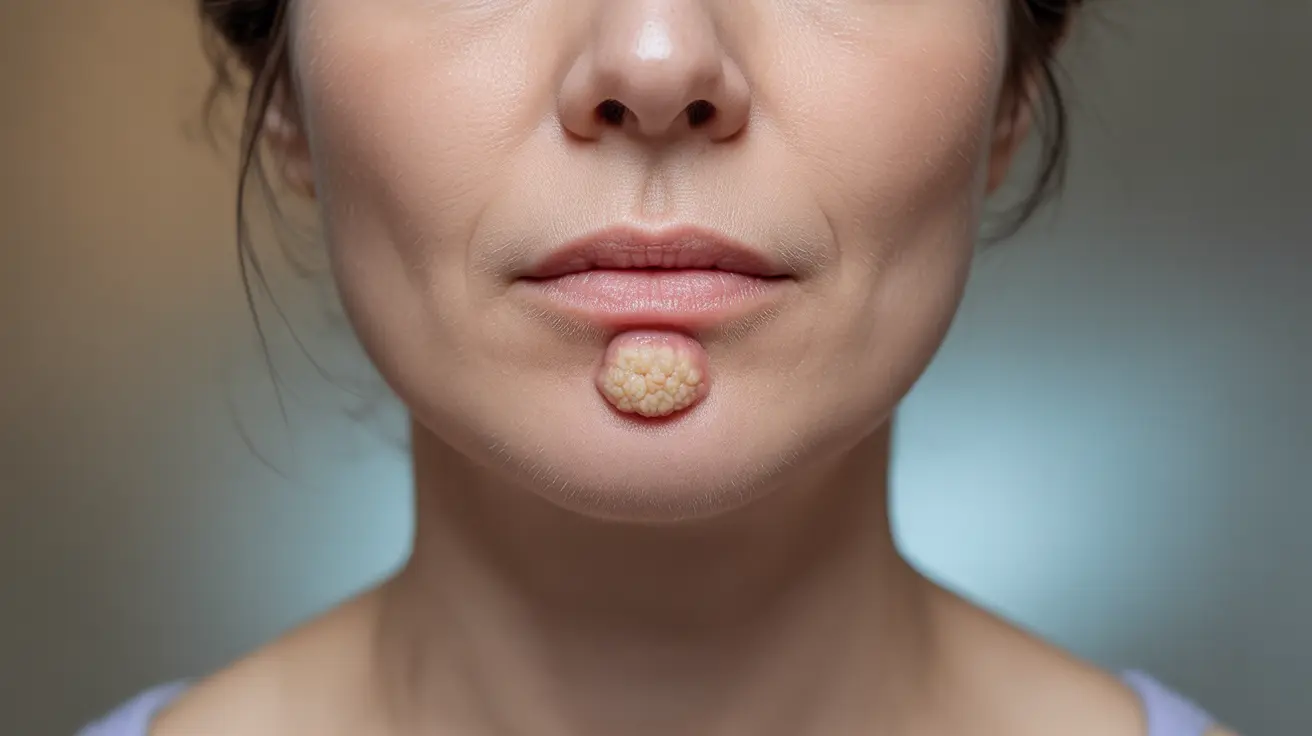Discovering a growth on your lip can be concerning, especially when you're unsure whether it's a wart or another type of skin lesion. Lip warts are relatively common viral growths that require proper identification and treatment to manage effectively. Understanding the key characteristics, causes, and available treatment options is essential for anyone dealing with these concerning growths.
Understanding Lip Warts vs. Skin Tags
Lip warts and skin tags are distinct types of skin growths with different causes and characteristics. Warts are caused by the human papillomavirus (HPV) and typically appear as rough, cauliflower-like growths. In contrast, skin tags are soft, smooth tissue growths that often develop from friction and aren't viral in nature.
Key Characteristics of Lip Warts
Lip warts typically present with these distinctive features:
- Rough, irregular surface
- Flesh-colored or slightly darker appearance
- Can appear individually or in clusters
- May feel slightly firm to the touch
- Can occur on or around the lips
Causes and Transmission of Lip Warts
Lip warts are primarily caused by HPV infection, which can spread through:
- Direct skin-to-skin contact
- Kissing someone with active warts
- Sharing personal items like lip balm or utensils
- Touching your mouth after contacting a wart elsewhere
The virus typically enters through small cuts or breaks in the skin, making damaged or dry lips more susceptible to infection.
Treatment Options for Lip Warts
Several treatment options are available for removing lip warts safely and effectively:
Professional Medical Treatments
- Cryotherapy (freezing)
- Laser therapy
- Surgical excision
- Prescription medications
Over-the-Counter Options
While some over-the-counter treatments exist, it's important to use these with caution on sensitive lip tissue and consult a healthcare provider first:
- Salicylic acid preparations (use only as directed)
- Natural remedies (though effectiveness varies)
- Wart removal patches (designed for lip use)
When to Seek Medical Attention
It's important to consult a healthcare provider if you notice:
- Rapid growth or changes in appearance
- Bleeding or pain
- Multiple warts spreading quickly
- Uncertainty about the type of growth
- Interference with eating or speaking
Frequently Asked Questions
What is the difference between a lip wart and a skin tag?
A lip wart is a viral growth caused by HPV, appearing rough and cauliflower-like, while a skin tag is a benign flesh-colored growth that's smooth and soft, typically caused by friction or skin rubbing.
How can I tell if a growth on my lip is a wart or a skin tag?
Warts typically have a rough, irregular surface and may appear grainy, while skin tags are smooth, soft, and attached by a small stalk. Warts may also be more firmly attached to the skin surface.
What causes lip warts and how are they spread?
Lip warts are caused by HPV infection and spread through direct contact with the virus, including kissing, sharing personal items, or touching infected areas. The virus enters through small breaks in the skin.
What treatment options are available for removing lip warts safely?
Safe treatment options include professional methods like cryotherapy, laser treatment, or surgical removal, as well as prescribed medications. Over-the-counter treatments should be used cautiously and only after consulting a healthcare provider.
When should I see a doctor about a growth or wart on my lip?
See a doctor if the growth changes in size or appearance, causes pain or bleeding, spreads quickly, or if you're unsure about its nature. Professional evaluation ensures proper diagnosis and treatment.




